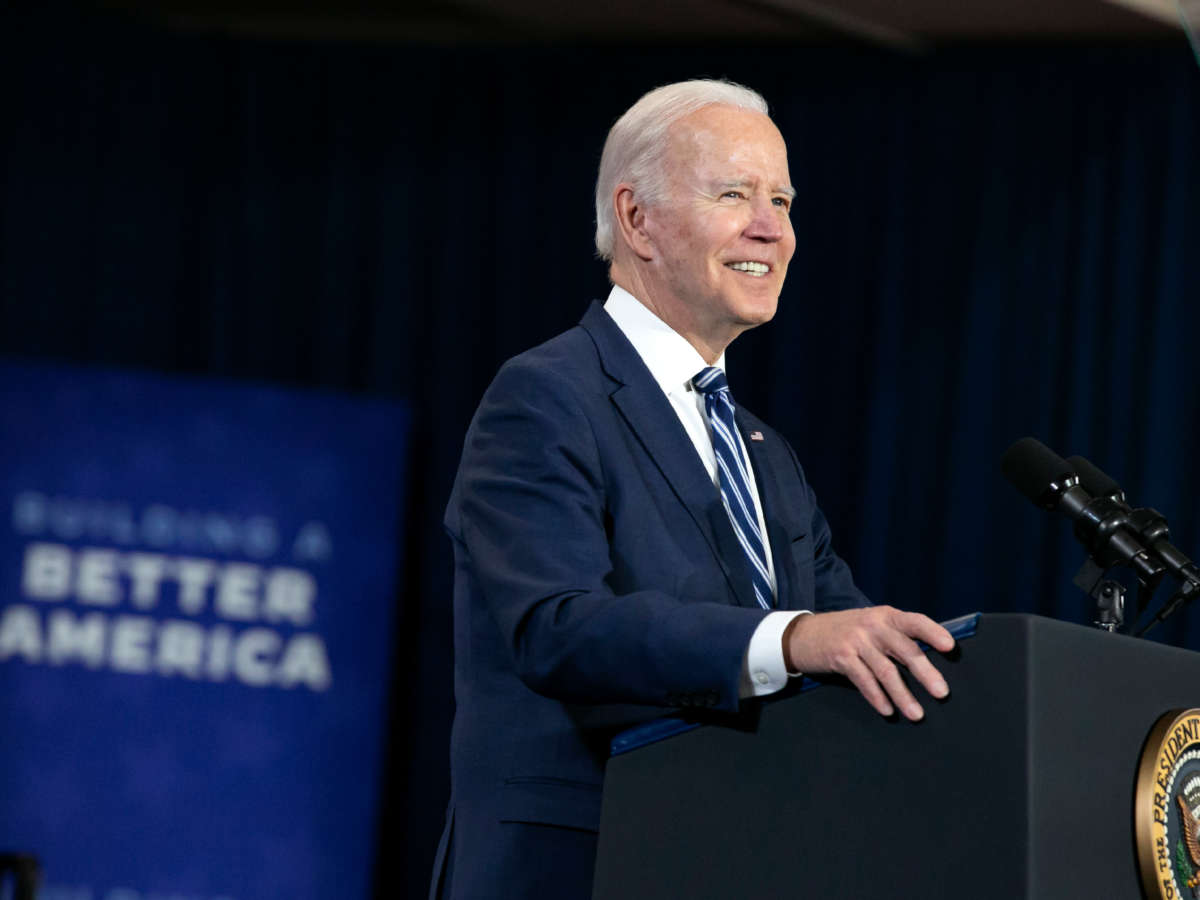New polling finds that most likely voters support President Joe Biden’s plan to implement a minimum tax on the richest households in the U.S., including a tax on unrealized gains from assets like stocks.
The polling released on Monday by Data for Progress finds that 59 percent of likely voters support the proposal, known as the Billionaire Minimum Income Tax, with only 31 percent of those polled in opposition — a 28-point margin.
The issue is particularly popular among Democrats, with 72 percent of respondents in favor. 55 percent of independent voters said that they favored the proposal, and a plurality of Republicans also support the idea, with 46 percent in favor and 43 percent opposed. People who own stock or real estate are also supportive of the idea, with 54 percent of respondents saying as such.
Biden recently submitted his budget request for Fiscal Year 2023 to Congress, which includes a minimum tax on the country’s richest roughly 20,000 households, or those worth over $100 million. These households would be subject to a 20 percent minimum income tax rate, and would include traditional incomes as well as unrealized gains from things like stocks and bonds, making it similar to a wealth tax.
Progressives and Democrats have long advocated for levying a tax on the richest people in the U.S., who are often able to exploit loopholes written into the tax code to pay low effective tax rates. ProPublica recently revealed that, between 2014 and 2018, the 25 richest Americans paid only 3.4 percent of their wealth gains in taxes, despite gaining a whopping $401 billion in that time. In a slightly more expansive analysis last year, White House economists found that the country’s wealthiest 400 families only paid a tax rate of 8.2 percent in income taxes between 2010 and 2018.
The wealthy are able to get away with paying such low effective tax rates in part due to a strategy known as “buy, borrow, die,” in which the wealthiest Americans can purchase stock and then borrow loans based off of their stock portfolios at very low interest rates. Then, they hold onto stocks — since they would have to pay taxes if they sold them — and eventually pass them onto their heirs, largely tax-free.
However, Data for Progress’s polling shows that many Americans are unaware of how taxes apply to people whose wealth largely comes from their assets. When presented with a hypothetical scenario in which a household held stocks that increased in value that year but didn’t sell the stocks, 28 percent of people incorrectly said that the household would have to pay taxes on the increased value of the stock. Among people who have never owned stocks or real estate, that proportion increased to 30 percent.
This misunderstanding could explain why there isn’t more support for the proposal to retool how the richest Americans are taxed. While 66 percent of likely voters surveyed believe that billionaires should be paying more in taxes, 19 percent believe that they are paying the right amount — despite the fact that billionaires pay much lower effective tax rates than the average taxpayer, and are able to leverage their wealth to manipulate markets in their favor.
It’s unclear if Biden’s proposal will end up in the final budget for next year. Lawmakers like Senators Ron Wyden (D-Oregon) and Bernie Sanders (I-Vermont) have introduced bills directly aimed at taxing billionaires, but they have failed to gain traction in Congress. However, the polling suggests that passing such legislation could help Democrats gain support among voters, which could be crucial for the midterm elections this fall.
The more Congress delays action on the issue, however, the larger the wealth gap grows. A recent analysis by Americans for Tax Fairness found that billionaires have collectively gotten $2 trillion richer during the pandemic thus far, increasing their wealth by a whopping 70 percent. Elon Musk has especially benefited from the pandemic, with his wealth skyrocketing by 1080 percent over the past two years alone.


